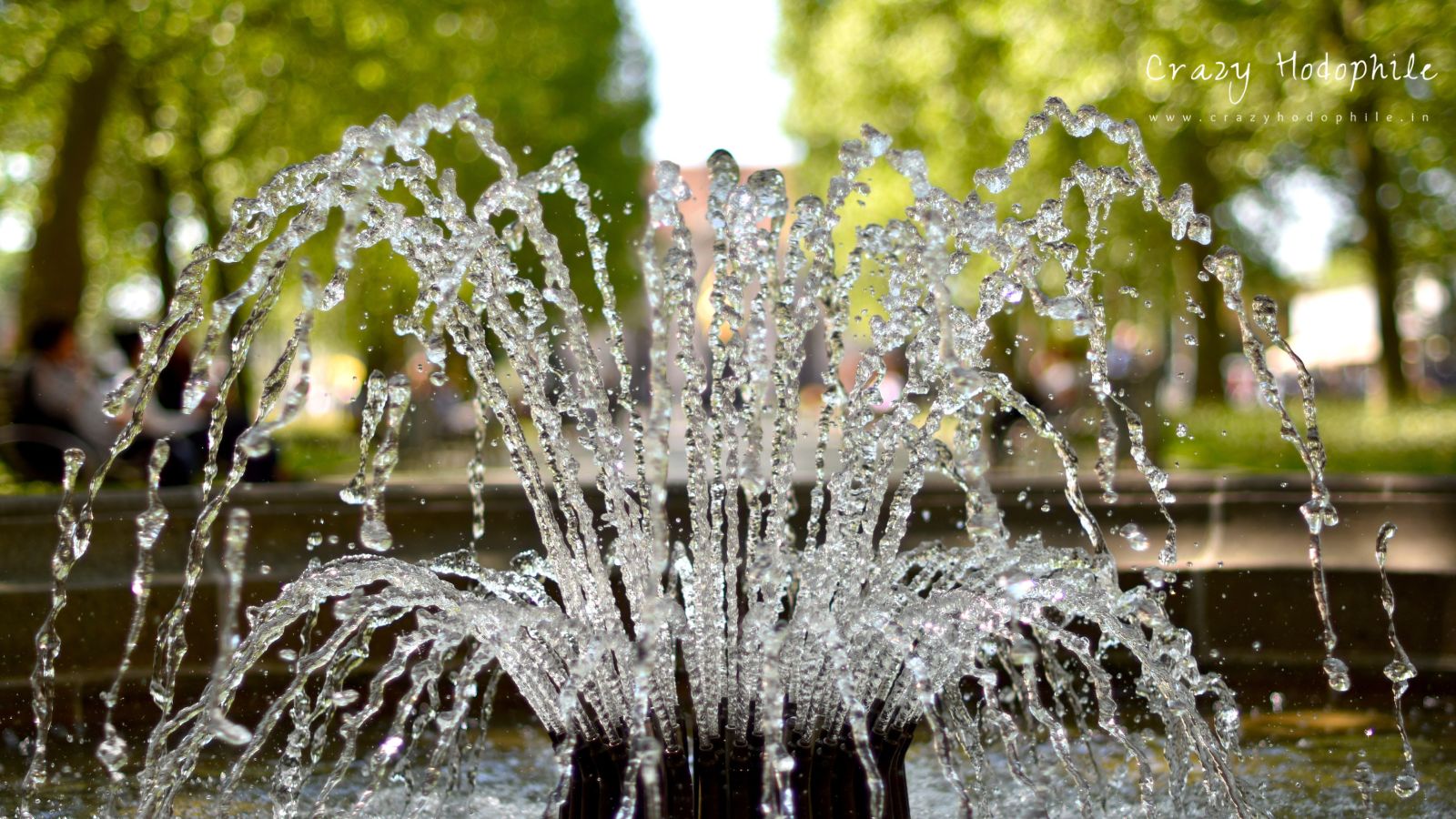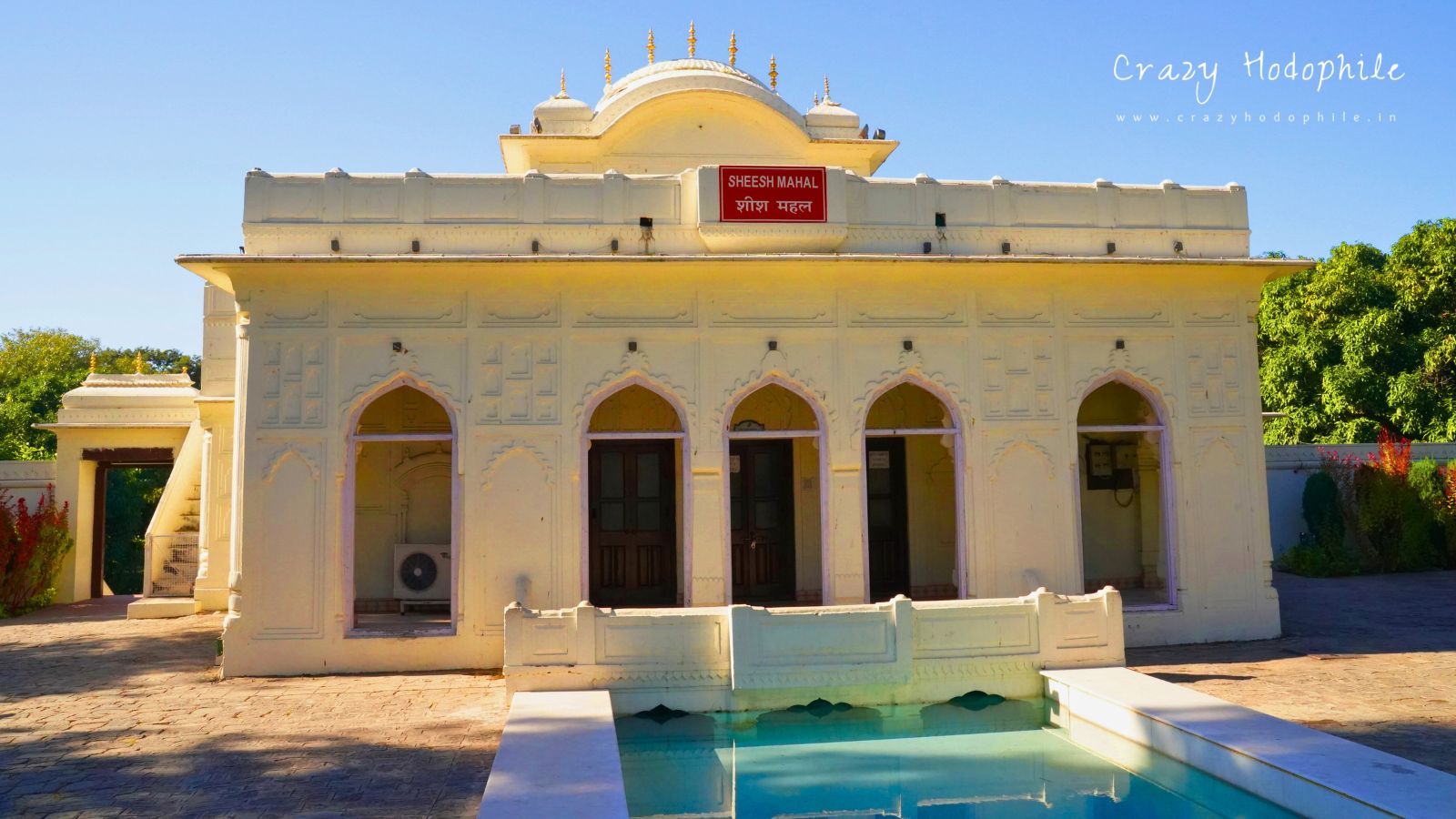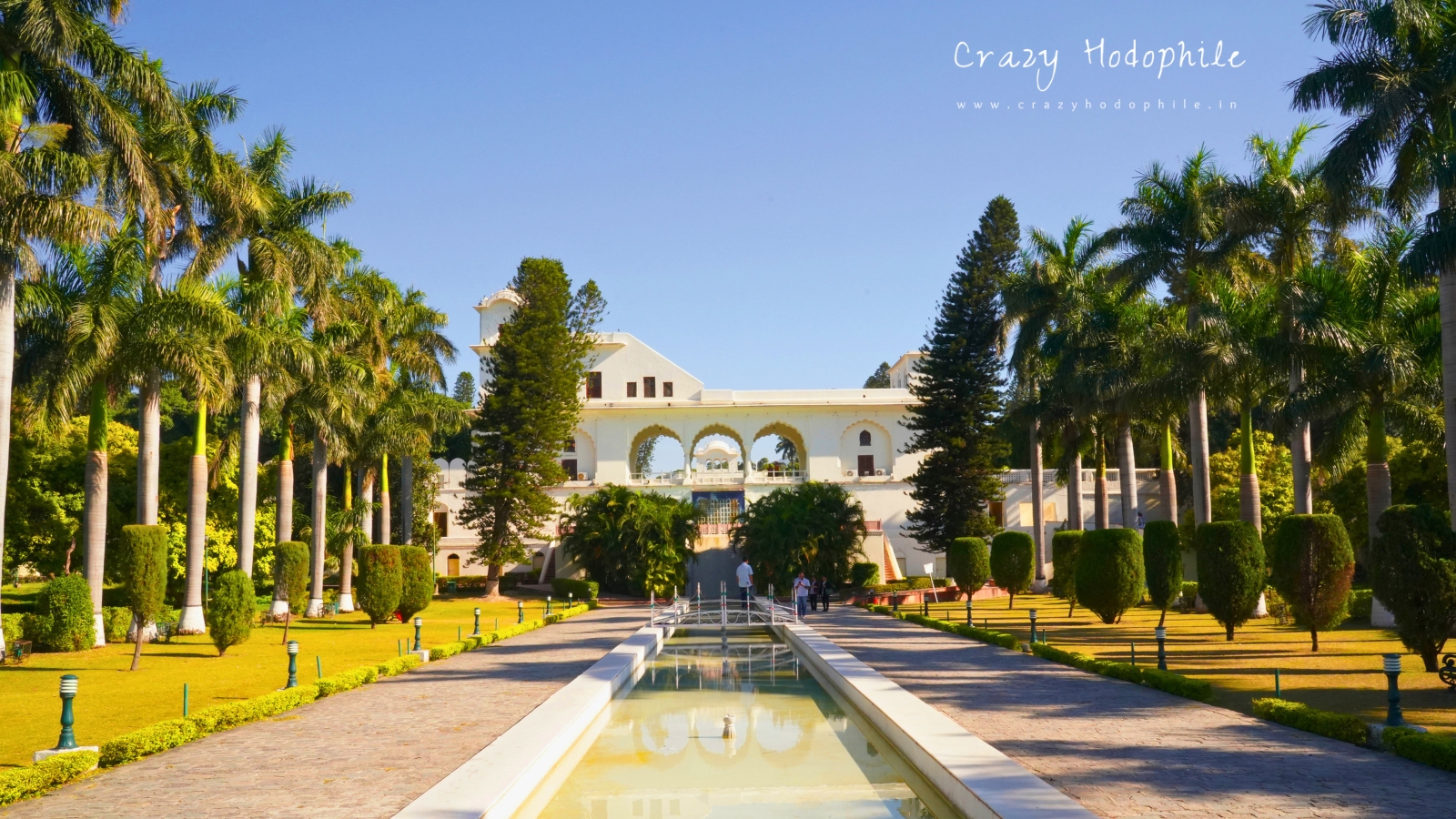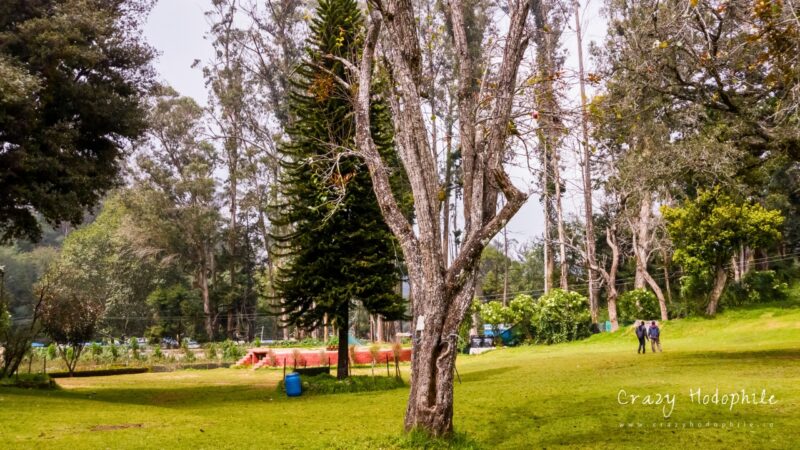Yadavindra Gardens, Pinjore: A Complete Visitor’s Guide | Crazy Hodophile | 2025
Yadavindra Gardens, also known as Pinjore Garden, is a splendid Mughal-style Garden complex nestled in the foothills of the Shivalik Range in Pinjore, Panchkula district in the Indian state of Haryana. Spread over 100 acres, the garden reflects the grandeur of Mughal architecture with elements of Rajasthani and Persian styles.
Table of Contents
Overview
With its sprawling terraced lawns, cascading fountains, and ornate palaces, Yadavindra Gardens transports visitors to a world of serenity and splendor.

Architectural Style
The architectural style is a splendid blend of Mughal, Rajasthani, and Persian influences. Drawing inspiration from renowned gardens like Shalimar Bagh in Kashmir. The gardens are divided into seven terraces, each with its unique charm and character. The main entrance leads to the highest terrace, where a palace stands as a testament to the fusion of Rajasthani and Mughal architectural elements. The terraces are connected by a series of cascading waterfalls and fountains, creating a soothing and mesmerizing ambiance. The palaces within the complex boast intricate carvings, delicate latticework, and vibrant frescoes.
Opening and Closing
It is open to the public from 7:00 AM to 9:30 PM daily.
Best Time to Visit
The best time to visit Yadavindra Gardens is during the spring (February to March) and early winter (October to November) when the weather is pleasant and ideal for outdoor activities.

Entrance Fee & Other Charges
There is a nominal entrance fee to visit the gardens.
- Indian Visitors: ₹25 per person
- Foreign Visitors: ₹200 per person
- Camera Fee: There is no separate camera fee for personal photography or videography using your phone. However, professional photography or videography may require special permission and might incur additional charges.
- Parking Charge: is generally around ₹20 to ₹50.
Note: Ticket charges are subject to change.
Amenities within the Complex
The garden complex provides various amenities to enhance visitors’ experience:
- Basic amenities: Restrooms, water fountains, seating areas, and parking facilities.
- Recreational Amenities: Camel and Horse Rides, Toy Train Rides, and Local Shops.
- Additional Amenities: Food stalls and restaurants (availability may vary)
Historical Details
The garden, originally known as the Persian Gardens, was built in the 17th century during the reign of Mughal emperor Aurangzeb by Fidai Khan Koka, Aurangzeb’s foster brother. Later, the garden saw significant expansion and renovation under the Sikh rulers of the Patiala dynasty, starting with Maharaja Amar Singh in the 18th century. In the 20th century, further enhancements were made by the last Maharaja of the Patiala dynasty, Maharaja Yadavindra Singh, in whose memory the garden was renamed Yadavindra Gardens. This splendid garden served as a summer retreat for the royal family and a venue for grand festivities.
Material Used
Structures within the gardens, such as Sheesh Mahal, Rang Mahal, and Jal Mahal, showcase a blend of red sandstone and marble, complemented by decorative tilework, which was characteristic of Mughal architectural aesthetics and their penchant for luxury. The extensive use of marble is also evident in the fountains, stone pathways, and intricately designed pavilions, contributing to the overall grandeur of the gardens. Water features like canals, pools, and fountains enhance the visual appeal and create a refreshing atmosphere.

Attraction Points
- Enjoy a peaceful walk in the pretty gardens. Look at the lovely fountains, steps, and flowers.
- Sheesh Mahal: This palace is adorned with intricate mirror work and offers stunning views of the gardens.
- Jal Mahal: This palace is surrounded by a moat and offers a picturesque setting.
- Local Shops: A collection of shops offering handicrafts, artificial jewelry, and toys, providing visitors with opportunities to purchase souvenirs and local crafts.
- Rides: Enjoy paid rides on camels or horses, or let the little ones have fun on the toy train.
Fair and festivals
- Pinjore Baisakhi Festival: A two-day spring festival celebrating Vaisakhi in April, featuring regional food, handicrafts, and cultural performances.
- Pinjore Mango Fair: A two-day summer festival in July, promoting India’s mango production with mango competitions, cultural programs, and a crafts bazaar. It has been upgraded to an international festival since 2018.
- Pinjore Heritage Festival: A two-day winter festival in December, showcasing the region’s cultural heritage with performances, competitions, crafts, and food. The garden is beautifully decorated with lights and festive elements.
Visiting Tips
- Comfortable Footwear: Wear comfortable shoes as you’ll be doing a fair bit of walking to explore the expansive gardens.
- Stay Hydrated and Energized: It’s a good idea to bring a water bottle and some snacks, as the availability of food stalls might vary.
- Sun Protection: If visiting during the summer, bring a hat and sunglasses to shield yourself from the strong sun.
- Respect the Environment: Avoid littering and adhere to the garden’s guidelines to help maintain its pristine beauty.
- Evening Visit: Consider visiting in the evening to witness the enchanting illumination of the gardens, creating a magical ambiance.
- Allocate Ample Time: The gardens are quite large, so plan to spend at least 2-3 hours to fully appreciate all they have to offer.
Bonus Tip: If you’re interested in experiencing the gardens at their most vibrant, plan your visit during the annual Pinjore Heritage Festival.
How to Reach
- By Road: Yadavindra Gardens is conveniently located near the Pinjore Bus Stand, just 1.5 km away by road. The gardens are well-connected by road and can be easily accessed from major cities like Chandigarh, Panchkula, and Shimla via NH5. You can choose from various transportation options, including public buses, taxis, or private vehicles, to reach this beautiful destination.
- By Air: The nearest airport is Chandigarh International Airport, approximately 26 km away from the gardens.
- By Train: The closest railway station is Kalka Railway Station, around 7 km away. Chandigarh Railway Station is also nearby, about 19 km away.
Note: For more information, you can visit the official website: https://panchkula.nic.in/tourist-places/
Location Map for Yadavindra Gardens
What’s Worth Seeing Near Yadavindra Gardens
- Bhima Devi Temple Complex: A UNESCO World Heritage Site, often nicknamed the “Khajuraho of North India” for its erotic sculptures, this complex features the restored ruins of an ancient Hindu temple dating back to the 8th-11th centuries AD. (Approximately 1 km away)
- Morni Hills: A popular hill station near Pinjore, known for its scenic beauty, trekking trails, and lakes. It’s a perfect getaway for nature lovers and adventure enthusiasts. (Approximately 30 km away)
- Kalka-Shimla Railway: A UNESCO World Heritage Site, this narrow-gauge railway offers a picturesque toy train journey through the hills. The Kalka station is conveniently close to Pinjore. (Approximately 7 km away)
- Chandigarh’s Rock Garden: Located in Chandigarh, this unique garden created by artist Nek Chand is a masterpiece made entirely of industrial and home waste. It’s a testament to creativity and recycling. (Approximately 23 km away)
- Sukhna Lake: Another attraction in Chandigarh, Sukhna Lake is a serene spot ideal for boating and picnics. Enjoy the beautiful views and relax by the water. (Approximately 22 km away)




Good work dear.
Thank you so much! Bhaisahab